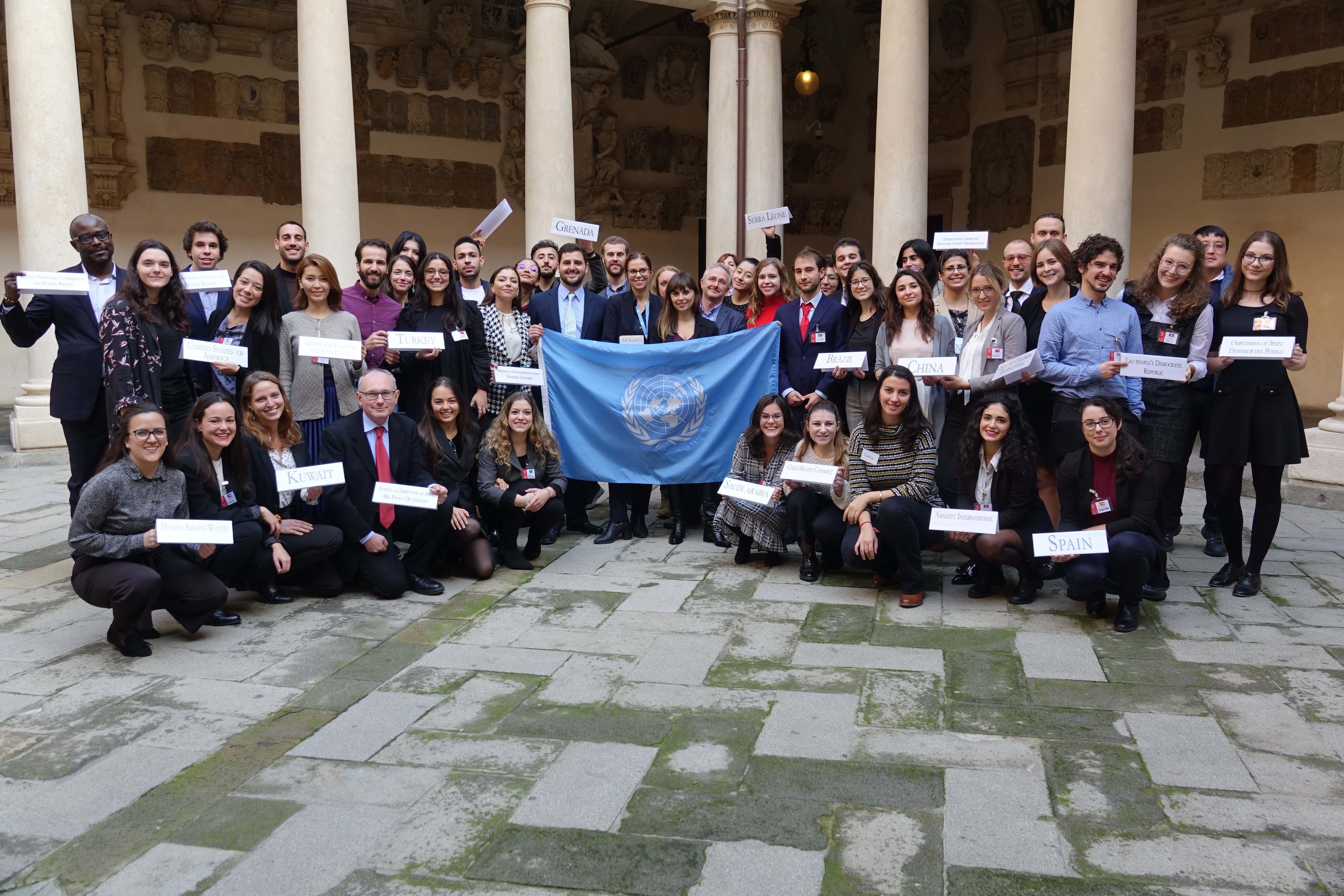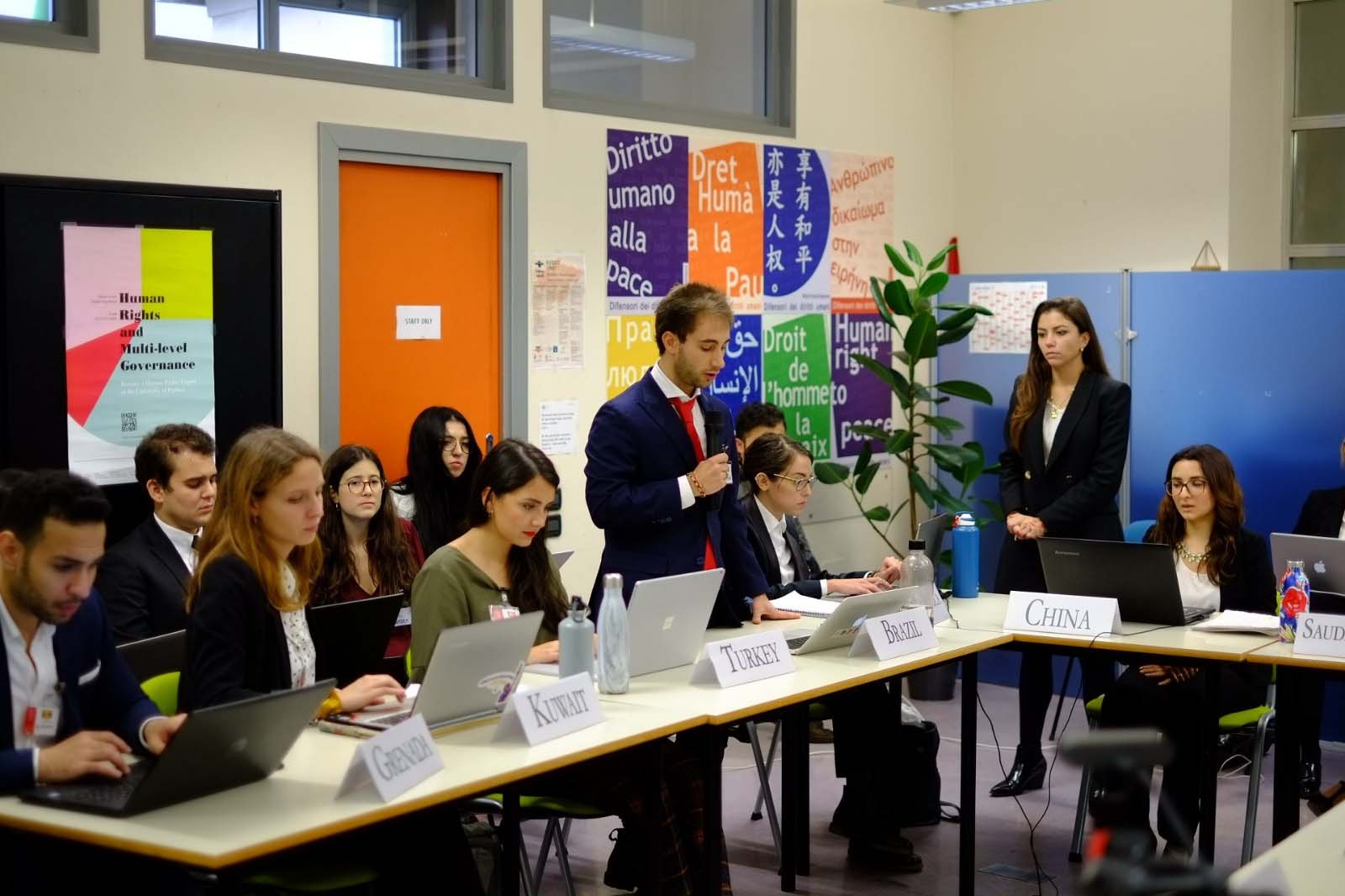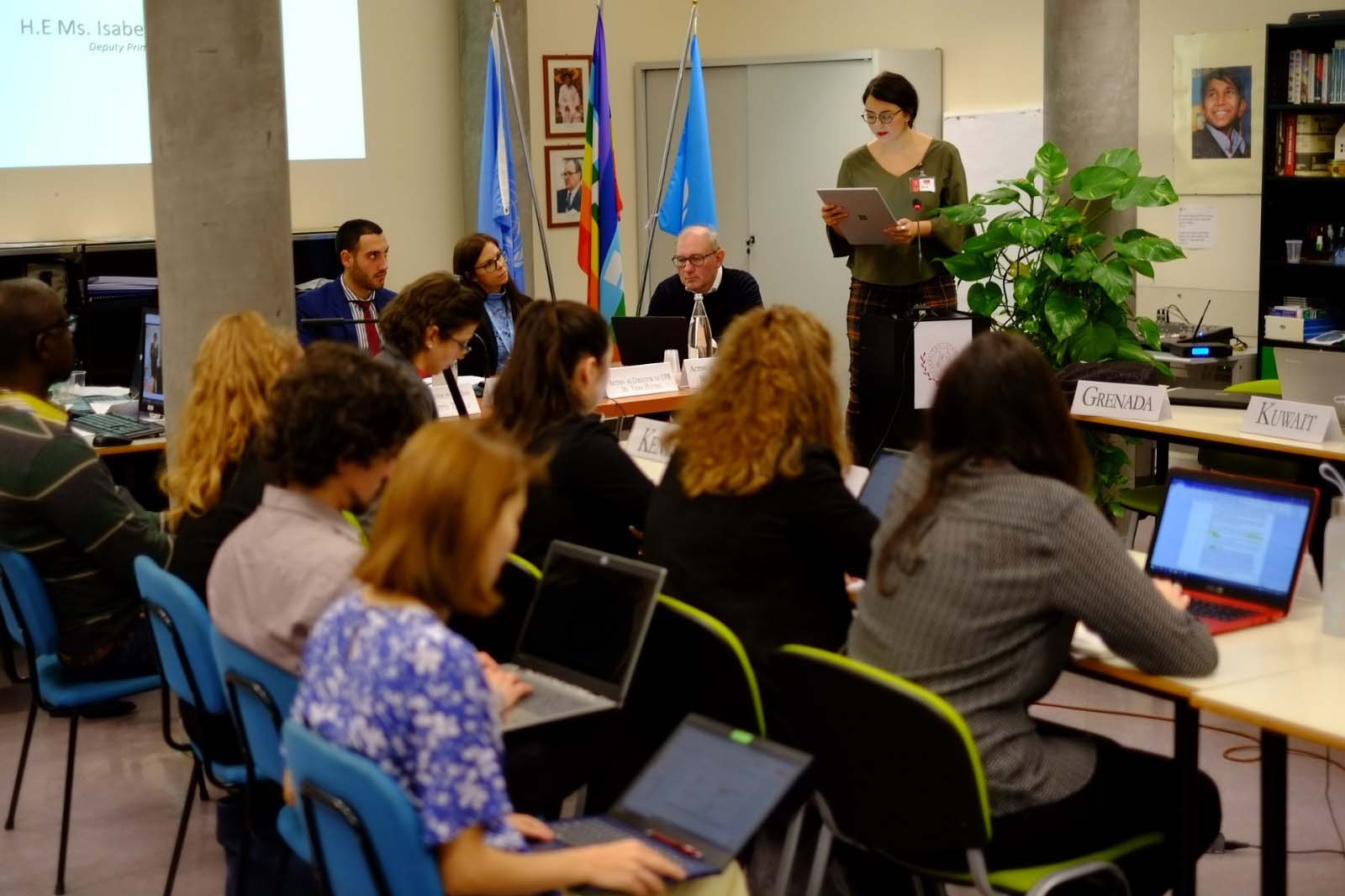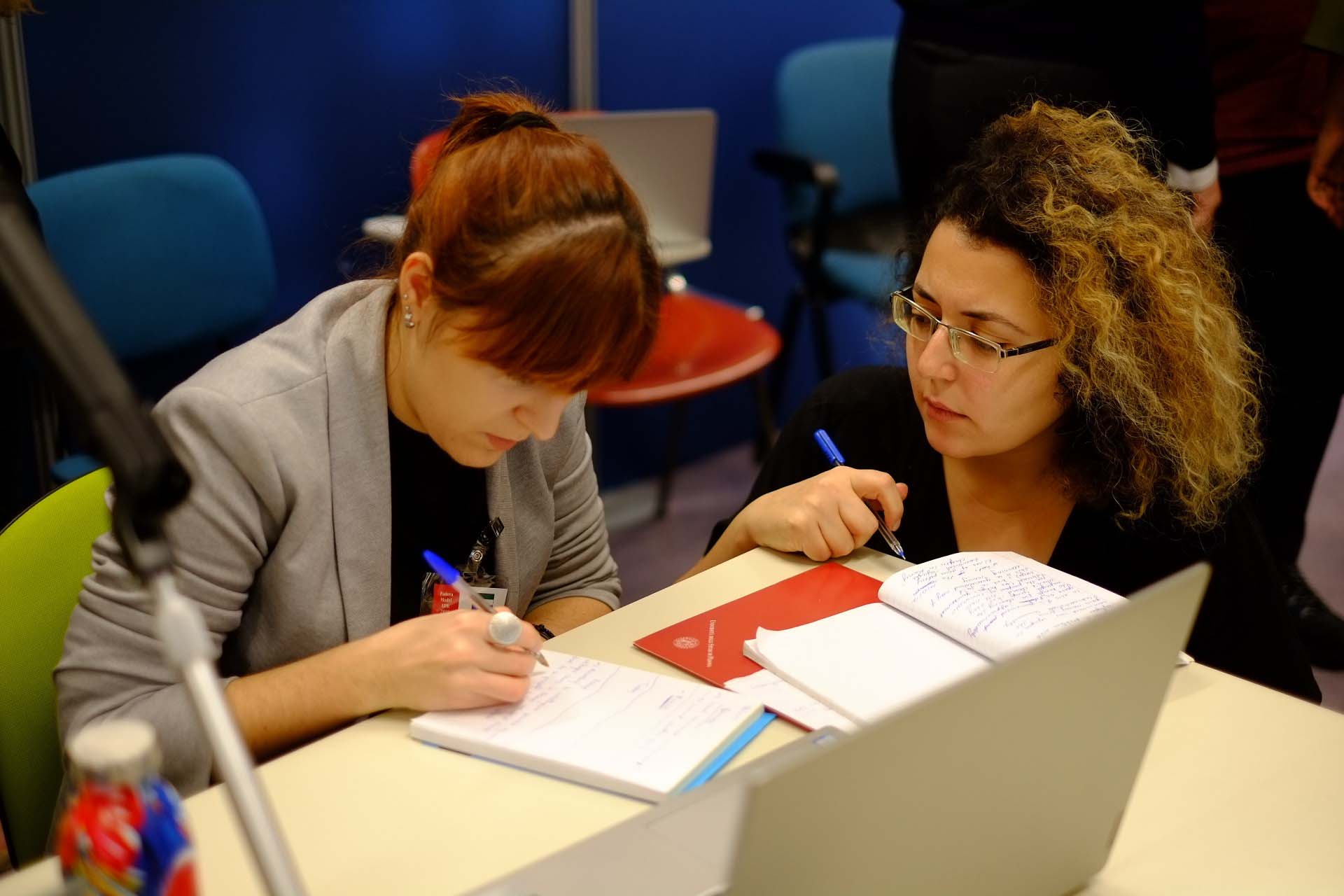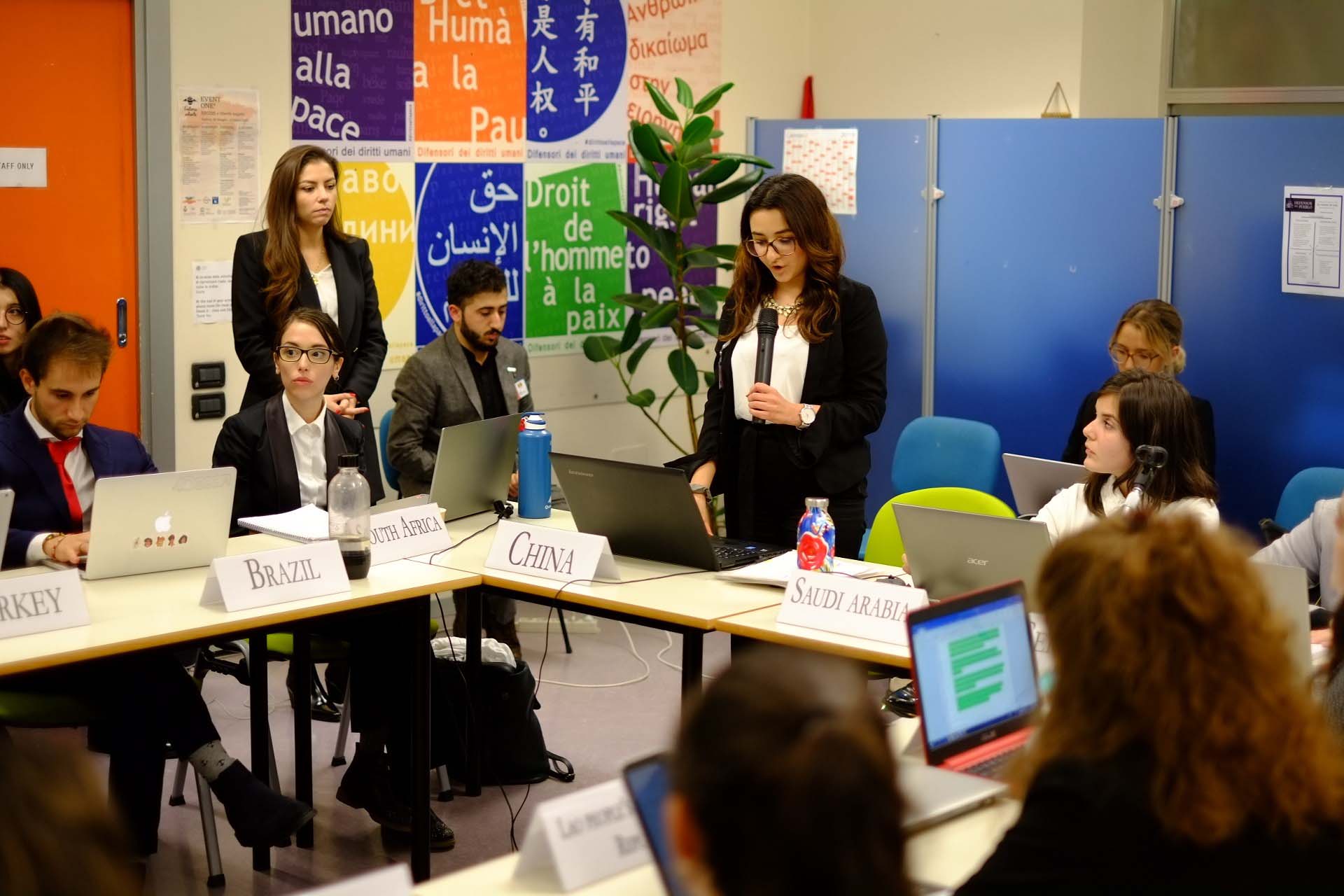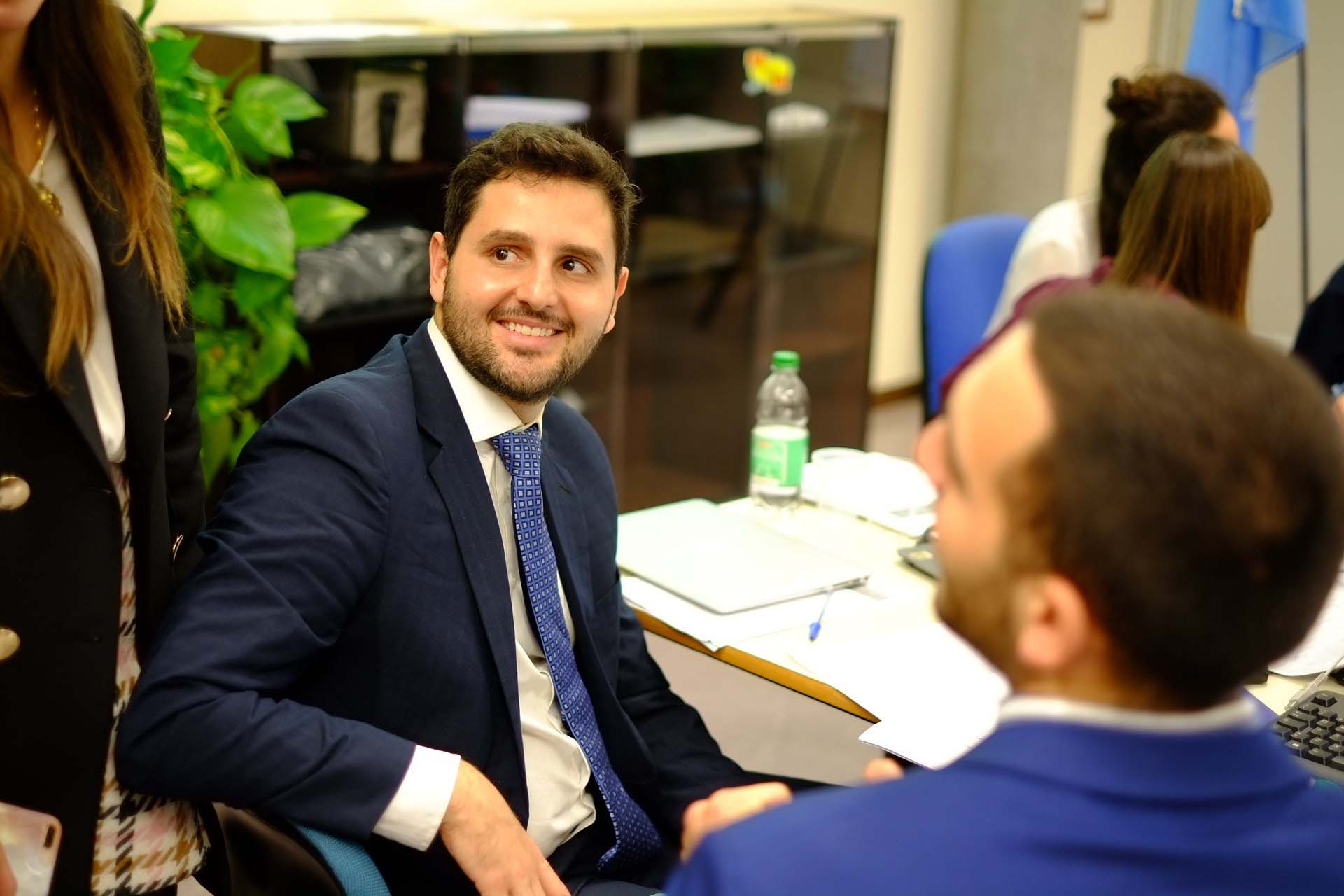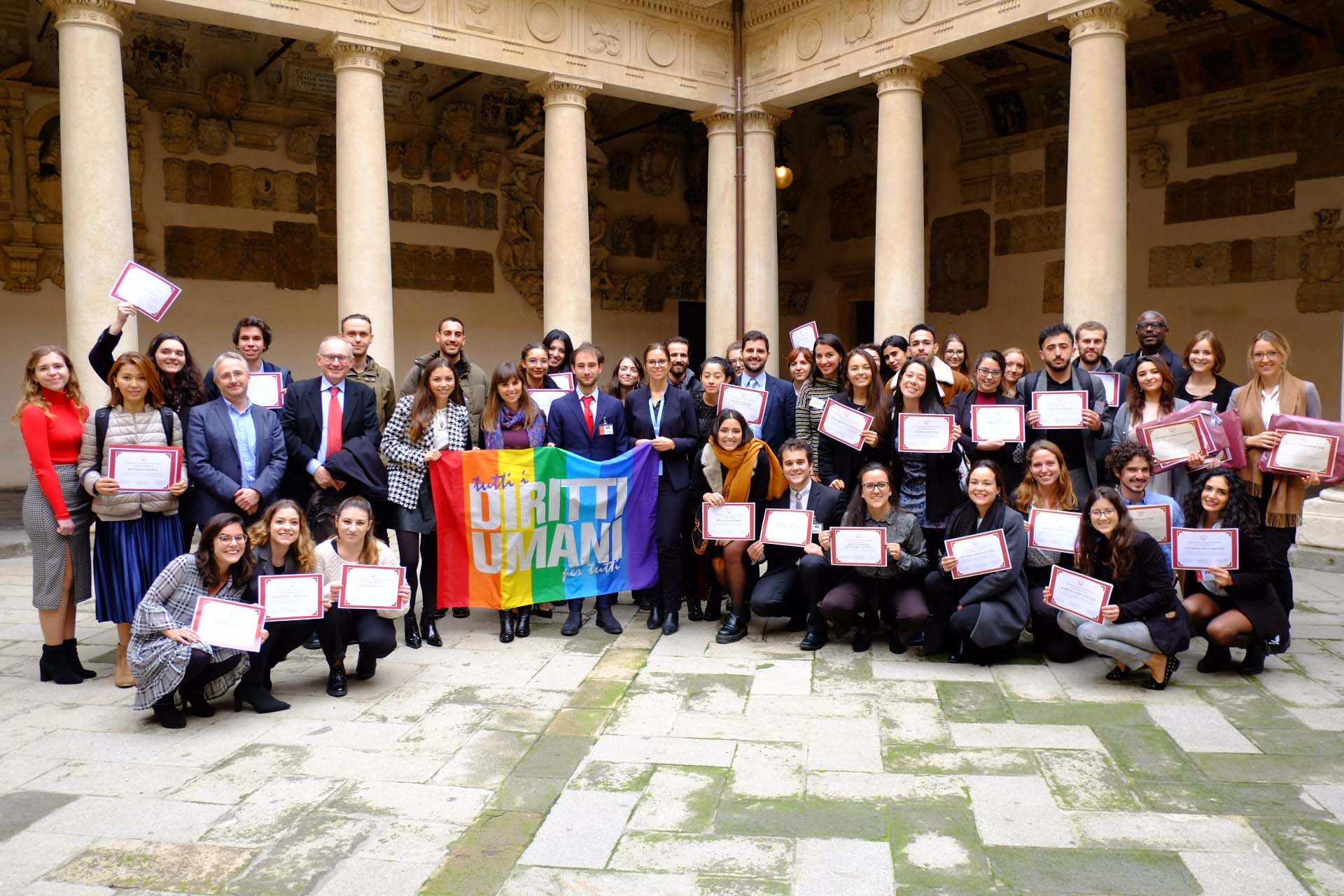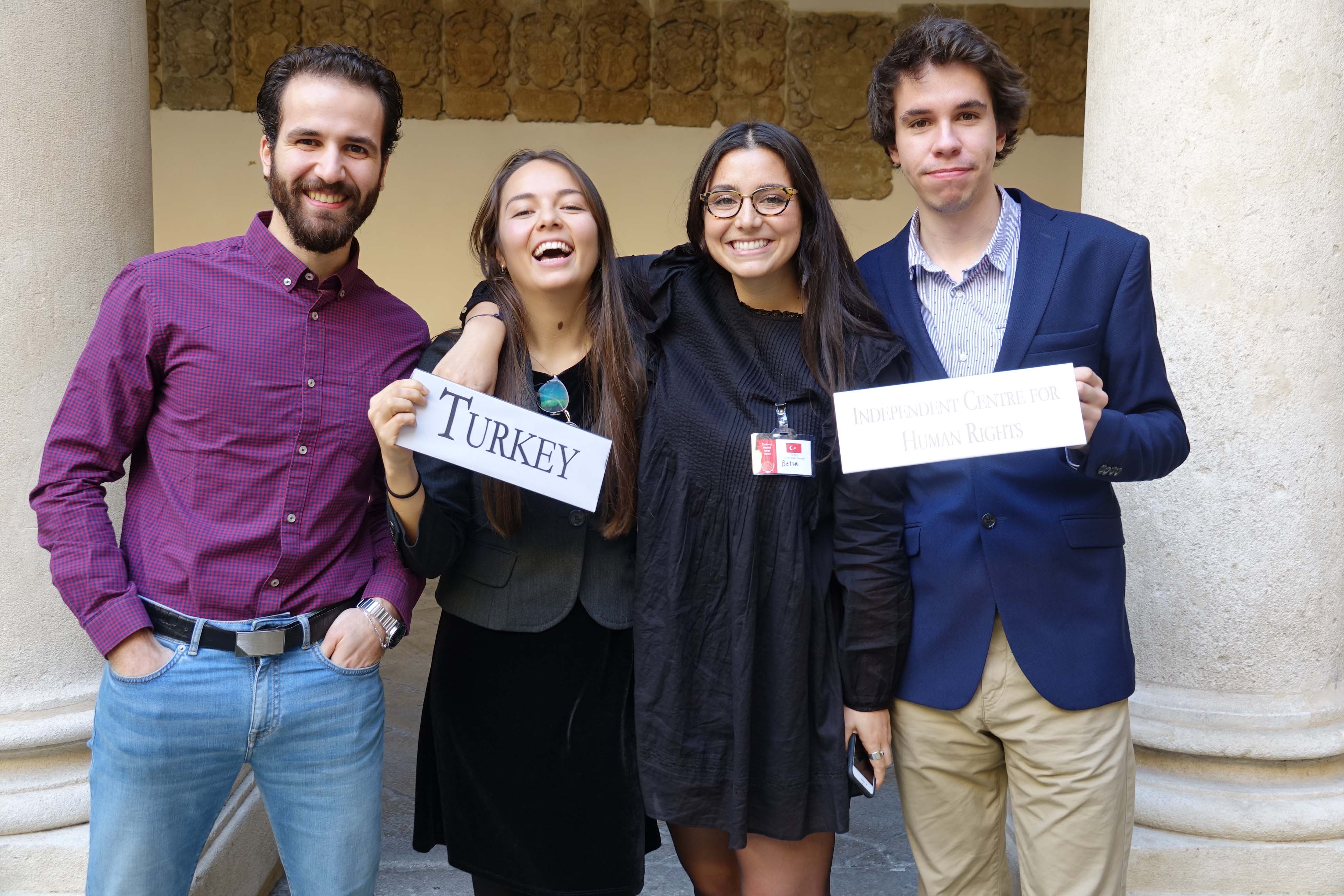Padova Model UPR, 2° edition, November 2019
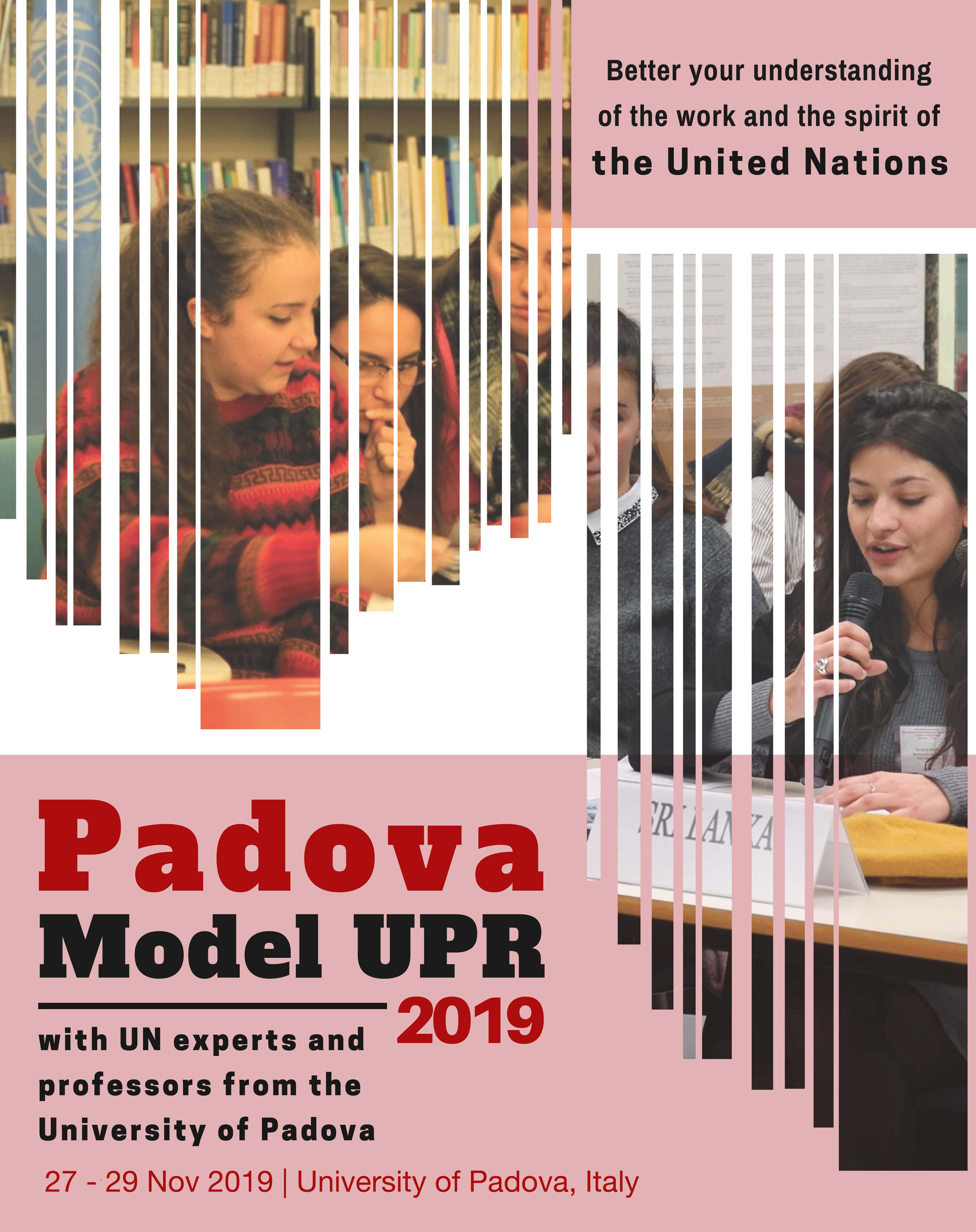
The Master's degree in Human Rights and Multi-level Governance at the University of Padua, with the support of the Department of Political Science, Law and International Studies and of the Human Rights Center “A. Papisca ”of the University of Padua, is organizing the
Padova Model UPR 2019
What's a UN Model (MUN)?
A "Model United Nations", or MUN , is a widespread type of academic project in which the diplomatic activities are taken Similar projects replicated in other international organizations, such as the EU institutions or the ILO bodies. MUNs drive students to learn by engagement, rather than just reading books.
What's the UPR?
The " Universal Periodic Review" (UPR) is a unique procedure within the UN human rights machinery: a mechanism of the Human Rights Council based on peer-to-peer cooperation among UN Member States. Any Country can address recommendations to any other partner, and tha latter can either support or "note" them, and commit itself to implement those accepted. UPR sessions are conducted three times a year in Geneva by the Human Rights Council Working Group, composed by the 47 Member States of the Council, with the technical support of a dedicated branch of the Office of the High Commissioner for Human Rights (OHCHR). The output of the Working Group is then approved in a subsequent ordinary session of the Human Rights Council. Over the UPR cycles, the procedure drives States to identify their strengths and weaknesses nd prioritise their strategies.
What's the Padova Model UPR?
The Padova Model UPR is a simulation of the actual UPR procedure. The main phases include: the articulation and drafting of a State's positions on human rights implementation, both domestically and vis-à-vis the others States's performances; the interactive dialogue within the Human Rights Council's Working Group; the adoption of the final UPR report on the States under review, and the comments of the civil society organizations.
The Padova Model UPR offers master's degree students an opportunity of non-formal education. Teams must thoroughly analyze the human rights performance of the State they are representing and of the other States included in the exercise. Teams set up their positions and play their roles in the simulation, trying to reflect the political environment of the assigned State, but also respecting the genuine goals of the UPR mechanism. Team members may also play the roles of Civil Society Organisations active in the State and, if applicable, of National Human Rights Institutions. Each team will therefore give voice to the government of the assigned State, but also to its civil society.
Interview with Nicoletta Zappile, UPR Info
Outline of the main phases:
1) Preparatory phase: October-early November, 2019
October: The Secretariat get in touch with the selected teams and organizes seminars (in presence or online) and publishes tutorials to train and provide inputs. The human rights situations of selected States will be studied by teams using all available resources (in particolar their previous UPR cycles). For the 2019 simulation, States have been chosen among those involved in the UPR review of January 2020 either as States under review or as troika States, namely:
Lao People’s Democratic Republic, Spain, Kenya, Grenada, Turkey and Kuwait (States under review - SuR) and
Sierra Leone, USA, Saudi Arabia, China, South Africa and Brazil (reviewing States - RS)
Early November : each team is assigned the role of one of the said States.
2) Final phase: PADOVA MODEL UPR 2019, The Simulation: Padua, 27-29 November 2019
Day 1 (afternoon): pre-session: civil society / NHRIs from SuRs brief the governmental representatives of RSs;
Day 2 : simulation of the UPR Working Group session with six SuR and RS.
Day 3 : Adoption of the UPR reports on the SuR by the Human Rights Council.
Who can apply?
Applicants can be students from any Universities, attending undergraduate or master's courses in Law, Political Sciences, International Relations, Human Rights, and related fields.
Students can apply individually or in a group of at least three. For the 2019 edition of the Padova Model UPR it was decided to allow for the participation of up to 12 teams. Although a group may include more students, only three will particopate in the final phase of the simulation in Padua.
How to apply?
Applicants have to fulfill the online form with personal data and basic knowledge about the UPR mechanism. The applications will be selected considering the best motivations and answers to the questions.
Call For Applications
Final call for International Applications is opened from 16th of September until 4th of October. Selected teams will be announced on the 8th of October.
The Call of Applications for Padua's students is Now Open and will close on the 8th of October. Selected teams will be announced on or before 10 of October.
Why to apply?
To directly experience challenges and dynamics that Government officials, diplomats, human rights defenders, independent institutions etc. face in dealing with the UPR.
Students can expand their knowledge of the UN environment, taking advantage of the involvement of academics, experts, human rights officers. Moreover, participants will have the chance to reach fellow students from other universities.
Participants may network with other students in a vibrant academic environment such as the University of Padua.
Participating students will be awarded with a Certificate of Attendance, provided by the OHCHR, together with UPR Info and University of Padua. Moreover, best teams and players will receive an additional award.
Where can I start to get familiar with the UPR mechanism?
Please start with the following:
UPR Info : http://www.upr-info.org
UN Human Rights Protection Mechanisms (OHCHR website): http://www.ohchr.org/EN/HRBodies/Pages/HumanRightsBodies.aspx
International Human Rights Law (OHCHR website): http://www.ohchr.org/EN/ProfessionalInterest/Pages/InternationalLaw.aspx
Universal Human Rights Index (OHCHRwebsite): http://uhri.ohchr.org
Is there any participation fee?
No, there is no participation fee for the students.
Are there any reimbursement / financial support for team delegates?
No financial support and no reimbursement are provided for participating in the Padua simulation. The organization provides for lunches and coffee breaks.
To facilitate participants' stay in Padova, an agreement has been made with a cooperative that runs two very convenient hostels in Padova. This is their offer (in communication, please mention the reference as indicated):
Option 2: Casa a Colori Padova - area Crocefisso (suburban, easy to reach by car. About 20 minute distance by bus No 3 to the Model UPR venue): 5 triple rooms available - Ref : convenzione UNIPD - scienze politiche. 20€ per person per night breakfast included. For reservation write to info@casaacoloripadova.com
Below are links to serve as guides and tips for selected participants who need to process visa in order to attend the simulation:
- http://vistoperitalia.esteri.it/home/en
- https://www.schengenvisainfo.com/schengen-visa-types/
- https://www.vfsglobal.com/en/individuals/index.html
Contact: upr.modelpadova@gmail.com
Padova model UPR 2019
THE OFFICIAL TEAMS FOR PADOVA MODEL UPR 2019
Team 1 (Karl-Franzens University, Graz): Maria-Angela Brunner, Laura Caroline Mische, Magdalena Pfeifenberger
Team 2 (Peter Pazmany Catholic University, Budapest): Aujeszky Nóra, Pecsi Andrea Brigitta, Debreczy Eszter
Team 3 (University of Padova) :Greta Sophie Codda, Paula Juanita Chavarria Acosta, Eloisa Caixeta Cunha
Team 4 (University of Padova): Tanya Nardotto, Consuelo Fontana, Dana Conzato
Team 5 (University of Padova): Francesca Pisanu, Gaia Carmilla, Isotta de Zandonati
Team 6: William Farquharson Häußler (University of Vienna), Emin Huseynzade (Ca' Foscari University, Venice), Hassan Omran (JLU, Gießen)
Team 7: Najiba Rafizade (Kocaeli University), Maria Fernanda Cantor Ortiz, Carolina Mejia Toro, Freideriki Eirini Pavlidou (University of Padova)
Team 8 (University of Padova): Steliana Rudco, Botakoz Kazbek, Clara Agostini
Team 9 (University of Padova): Miya Rebecca Takada, Bella Pacchiano, Patricio D'Acunti
Team 10 (University of Padova): Caterina Dollorenzo, Kauan Juliano Cangussú, Beatrice Bosco
Team 11 (Global Campus of Human Rights - EMA, Venice): Carolina Canettieri, Giovanni Martino, Maria do Carmo Coutinho
Team 12 (Global Campus of Human Rights - EMA): Marina Cases Sánchez, Mario Alejandro Fernandez De Lima, Simone Gavazzi
Participants are invited to visit the Moodle page dedicated to the project - see link below (credentials required).
Training meetings
Padova, November, 2019
A training for the participants of the Padova Model UPR 2019 took place last 6th November. It counted with the participation of prospective delegates from the University of Padua and from the MEA Program in Venice. The training was conducted by the secretariat of the Padova Model UPR 2019 team, namely Kristina Reshetova, Katerina Domaeva and Alejandro Álvarez Ramírez.
The training kicked off with a non-formal activity which aimed to break the ice and engage the participants with the subsequent activities. Each of them shared personal experiences and features of their personality. This activity was facilitated by Kristina.
There was a short presentation regarding the functioning and the main deadlines of the upcoming Padova Model UPR after the non-formal activity. The participants had already been trained in this regard. Nonetheless, some information was granted again and there was a round of questions in which the participants expressed their concerns and doubts regarding the functioning of the Padova Model UPR. The presentation was facilitated by Katerina.
Subsequently, a group activity was carried out. The activity was extracted from the EU Commission manual for non-formal education named COMPASS. The name of the activity is a “A mosque in Sleepy Ville”. Participants were assigned with different roles which they had to adopt quickly and perform according to them. According to their roles, the participants performed a town hall meeting in which they discussed the creation of a mosque in a major Christian town and the funds and lands for such a construction. They performed roles as Civil Society Organizations, Political Parties (traditionalist, populist and pro-liberties), citizens and so on. The activity was carried out accordingly and the participants succeeded in adopting the roles assigned. Some vivid and energetic discussions emerged and the participants clearly defended the interests of the groups they were representing. This activity was facilitated by Alejandro.
Lastly, the participants were divided in three different groups in order to be trained in: 1) how to write recommendations, 2) the role of CSOs and NHRIs in 3) the UPR and the functioning of the Working Group. These trainings were provided by Alejandro, Katerina and Kristina respectively.
1) This training gathered future participants of the Padova Model UPR who are part of Reviewing States. A short presentation was given on the main rules and standards for writing recommendations in the UPR. After it, an activity was facilitated. This activity made use of examples of “how to write recommendations” and “how not to write recommendations”. Students identified features of the recommendations that made them suitable or not for being used in any UPR session. At the end, a few minutes were dedicated to group reflection, to see if their expectations with the training had been met and if they felt enough prepared for the participation in the Padova Model UPR.
2) This activity was designed for participants of the Padova Model UPR who are part of CSOs and NHRIs. First, a brief presentation was given on the role of CSOs and NHRIs in UPR procedure in general and Padova Model in particular, followed by the overview of the main assignments, procedures and deadlines of the simulation. Then some guidelines were provided on written submissions, SMART recommendations, presentations. Furthermore, the participants discussed their possible strategies - on whether to work individually or in coalition, on lobbying their recommendations. In the end the participants received a UPR submission of an international NGO to analyse the contents of the report and the recommendations elaborated in it.
3) During the training for States under Review the participants had a chance to look more into details what their role is going to be and what they are supposed to do. First, they were provided with a brief presentation, where they got acquainted with all the necessary terms and resources where they can look for necessary information to prepare for their roles. After that, we analysed the structure of national report and opening statement in order to make sure everyone understands how it should be drafted. At the end, the participants were given the actual national reports of New Zealand, Afghanistan and Chile from the last review to see how it looks in reality. They were given some minutes to go through report and try to draft an opening statement based on that. It was a difficult task considering the lack of time; however, it was a good opportunity to do a practical exercise.
Vienna, November 9, 2019
The UPR training was held on the 09.11.2019 from 11:00 till 14:30 in the Sensengasse 3a in Vienna, Austria. I had four participants: three from Budapest, Hungary and one from Vienna, Austria. The participants were on time and excited about the training. All participants got the “States under Review” role assigned. Hence, the “States under Review” was the main topic in our training.
The participants were on time and excited about the training. We first made a get to know each other round, where everyone was introducing themselves and also saying why they want to participate in the simulation.
I asked the participants if they already have the tickets to come to Italy, as well as if they have accommodation in Padova. They all have the accommodation, and they will book the tickets soon.
I used the General Information PPT. We were discussing the simulation. First, how the simulation will look like. Secondly, what we will be doing and what are our tasks for each day. And thirdly, when they have to talk and present their state.
I showed them the States under Review PPT. We mentioned the most important points and the participants also had a lot of questions regarding the National Report and the Opening Statement. They also had a lot of questions regarding the CSO part.
We had a short coffee break (20 minutes). We went to a coffee bar near our training.
The Participants had 45 minutes time to prepare an Opening Statement. One group had Rwanda and the other Group had Ghana as a state. I printed the national reports of this two countries and they prepared the opening statement out of it. Each group presented their opening statement.
After the training we went to do some sightseeing. The participants were amazed by the city.
In short, it was a successful training and I really hope that our participants our now more prepared for the simulation in Padova.


